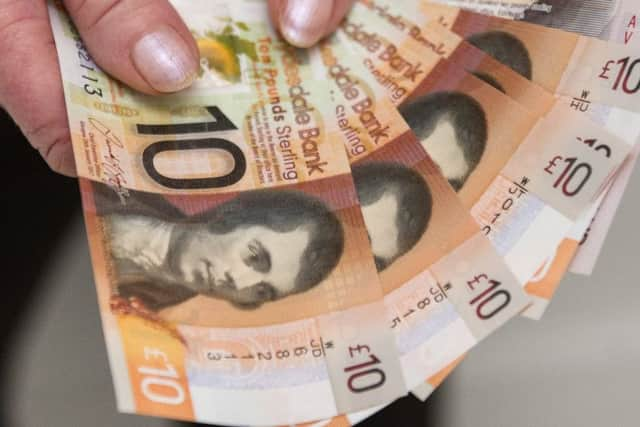Video: Why Scottish bank notes are not legal tender
You’re down visiting family in London for the weekend. You’re parched after a long train ride and head into a newsagent for a refreshing can of Irn Bru.
Disappointed, you take a can of coke to the counter instead and attempt to pay with a Scottish five pound note, but the cashier refuses.
Advertisement
Hide AdAdvertisement
Hide Ad“I think you’ll find that’s legal tender,” you say, echoing a million Scots before you.


Unfortunately, you would be wrong - Scottish bank notes have never been legal tender in the UK.
Not to say that the shopkeeper can’t accept your five pound note - Scottish (and Northern Irish) notes are legal currency, approved by the UK government, but in 2017 it’s exceedingly rare for everyday transactions to require legal tender.
Only Bank of England notes and Royal Mint coins qualify as legal tender, and only in England and Wales.
The Scottish economy has managed thus far without relying on legal tender at all, so far as Scottish notes aren’t even considered legal tender in Scotland.


Scottish and Northern Irish notes are classed as legal currency, as are modern technologies like debit cards, contactless patments and mobile transactions.
You could argue that an English shopkeeper who refuses a Scottish bank note but accepts Apple Pay has double standards, but stores have the right to reject any bank note, even legitimate legal tender, such as a Bank of England ten pound note.
As long as you’re paying with Scottish notes anywhere in the UK, cashiers can accept it as legal currency, fulfilling a transaction of goods between you and the vendor.
Unfortunately, “I think you’ll find that’s legal currency” doesn’t quite have the same ring to it.